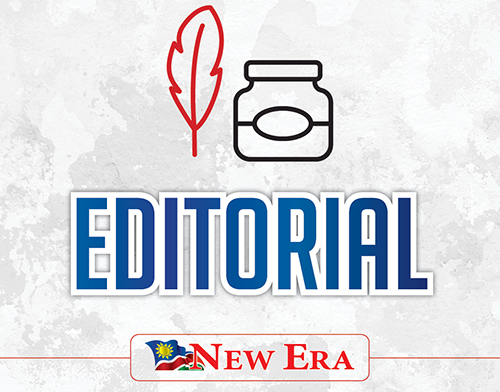Climate change has affected our lives in many ways. It has altered ways on how we should build our houses, and how we produce our food in terms of irrigation and animal-raising.
Rainfall has become erratic, and now more than ever very unpredictable.
Recently, we have noticed that rain starts very late in March in some areas where it used to come early in September, with long summers and short winters.
Lately, the sun starts burning immediately after the raindrops stop, and plants might wilt in a few days if there is no rain, a new trend.
As a country, we have seen severe floods, especially this year in the northern parts of the country mostly as well as across the country.
Floods of this nature have happened for the past years, and the government and other stakeholders have put in place measures to remedy the situation, some of which might not be permanent.
Often, we find ourselves back to square one again after heavy rains fall, where we lose yields due to flooded fields, closed schools, business interrupted and infrastructures damaged.
The traditional way of relocating flood victims needs to be revisited by designing more flood-resistant schools, towns and roads/bridges.
There is, however, one important thing that our governmrnt can explore doing, which is harvesting rainwater in large amounts.
Should a budget be allocated every financial year to building dams in the regions mostly affected by floods where floodwater can be easily channelled into those dams, we will not have such water destroying crops fields, roads and closing schools.
Once harvested, and considering that Namibia is a dry country, we would now have enough water for irrigation on land allocated near such dams for people to produce their own food.
Having readily available water that is harvested every year and used for irrigation through a well-coordinated programme by government will ensure food security in the country.
That can reduce the situation of us having to import maize and millet from neighbouring countries. Our national silos are mostly empty, but we have the possibility of keeping them full.
Using such water which always goes to waste after it has caused maximum damage year in and year out will create employment for our youth and the single mothers who are trying hard to put bread on the table.
Our country has no rivers of its own. We share rivers with neighbouring countries such as Angola and Zambia, and most of our water flows from there. We should, therefore, not feel safe not having enough water.
The solution to that is harvesting rainwater that we have been receiving in excess lately.
Our people in the villages and towns have indicated a willingness to work in Green Schemes which are already established by government, so providing more opportunities to do so by introducing more schemes is the best option.
We ran a story on our front page this week about mothers who left the comfort of their village homes to come to Windhoek in search of jobs, and because they cannot secure jobs, they decided to work with their hands to start small plantations along the B1 highway.
The courage and determination showed by these mothers in tilling the land and producing food to sell and for own consumption need to be emulated and taken advantage of by providing opportunities to such people.
Should they have water and land available through an organised system, there is no doubt they will produce food and contribute towards poverty eradication and food self-reliance.
Of course, we have Green Schemes in the various regions and small-scale farmers in Olushandja and other areas who are doing their best, which efforts are worth applause.
However, the idea is to have more Green Schemes from rainwater, and we will not have people begging for food in the streets.
Other benefits include affordable and readily available fodder for animals during the dry season, and improved diet and health situations of families. Knowledge about construction, agriculture and irrigation will further be developed. Possible income for households selling crops can increase.
The Neckartal Dam in the //Kharas region is a good idea, although we are yet to see the fruits of planned plantations there.
We can learn and borrow from countries such as India, Australia, China and countries in East and West Africa like Uganda, Burundi (The Nile Basin Initiative: Best Practices for Water Harvesting and Irrigation) and Tanzania that have harvested water before.
Let us invest in harvesting water, and avoid having to suffer from droughts immediately after the floods.



